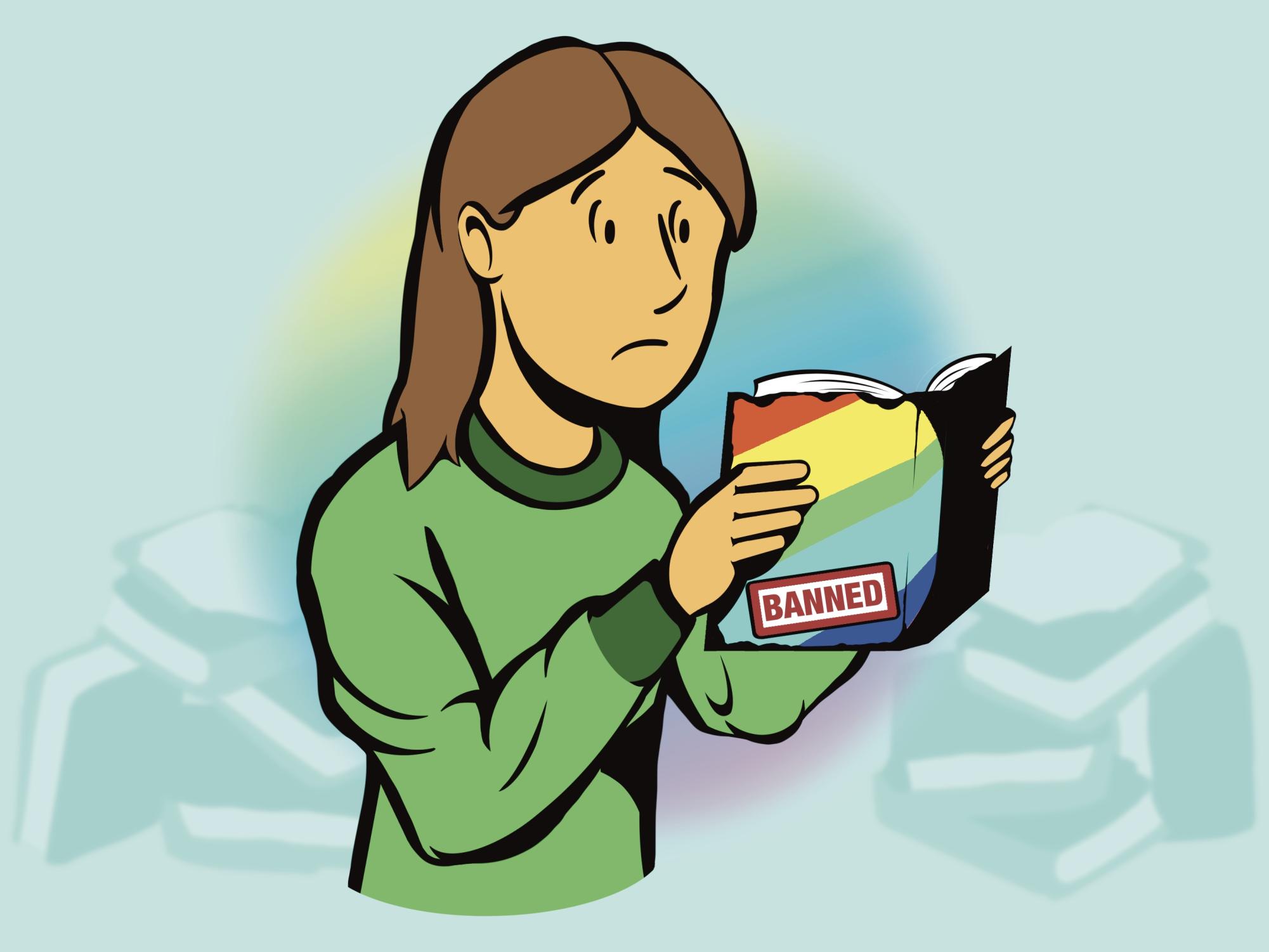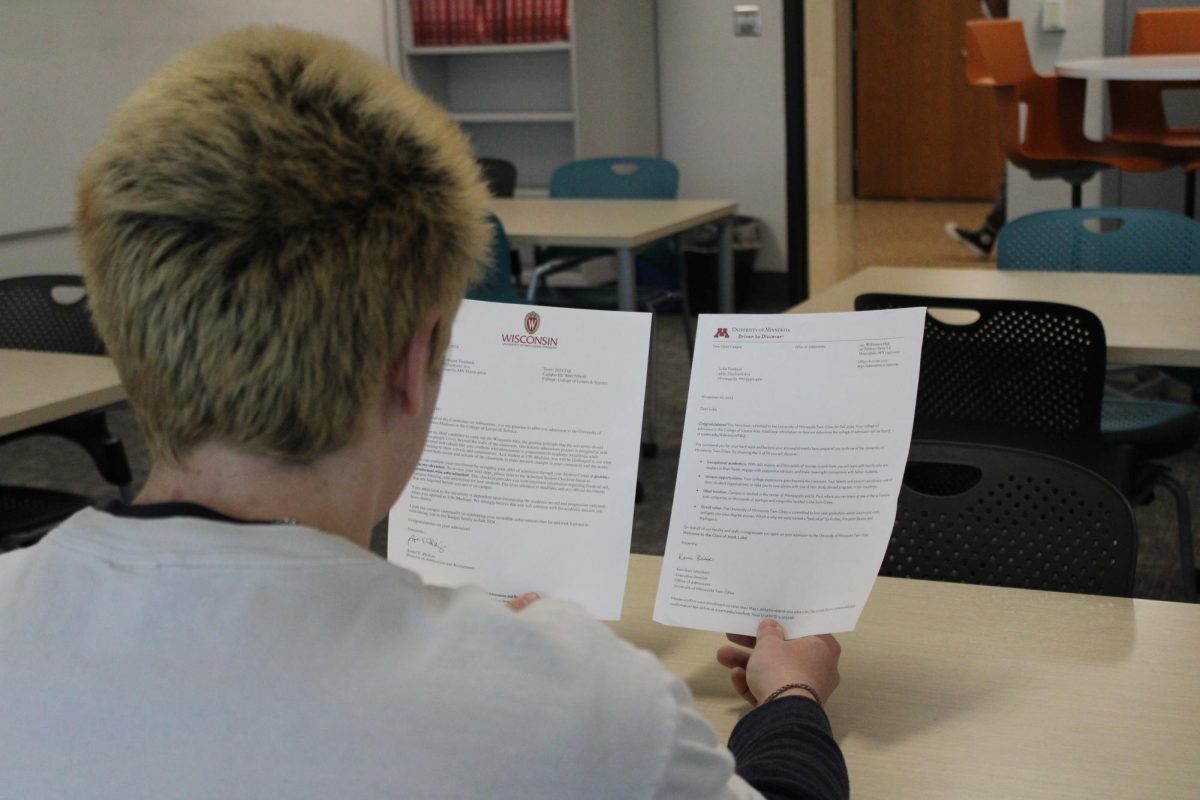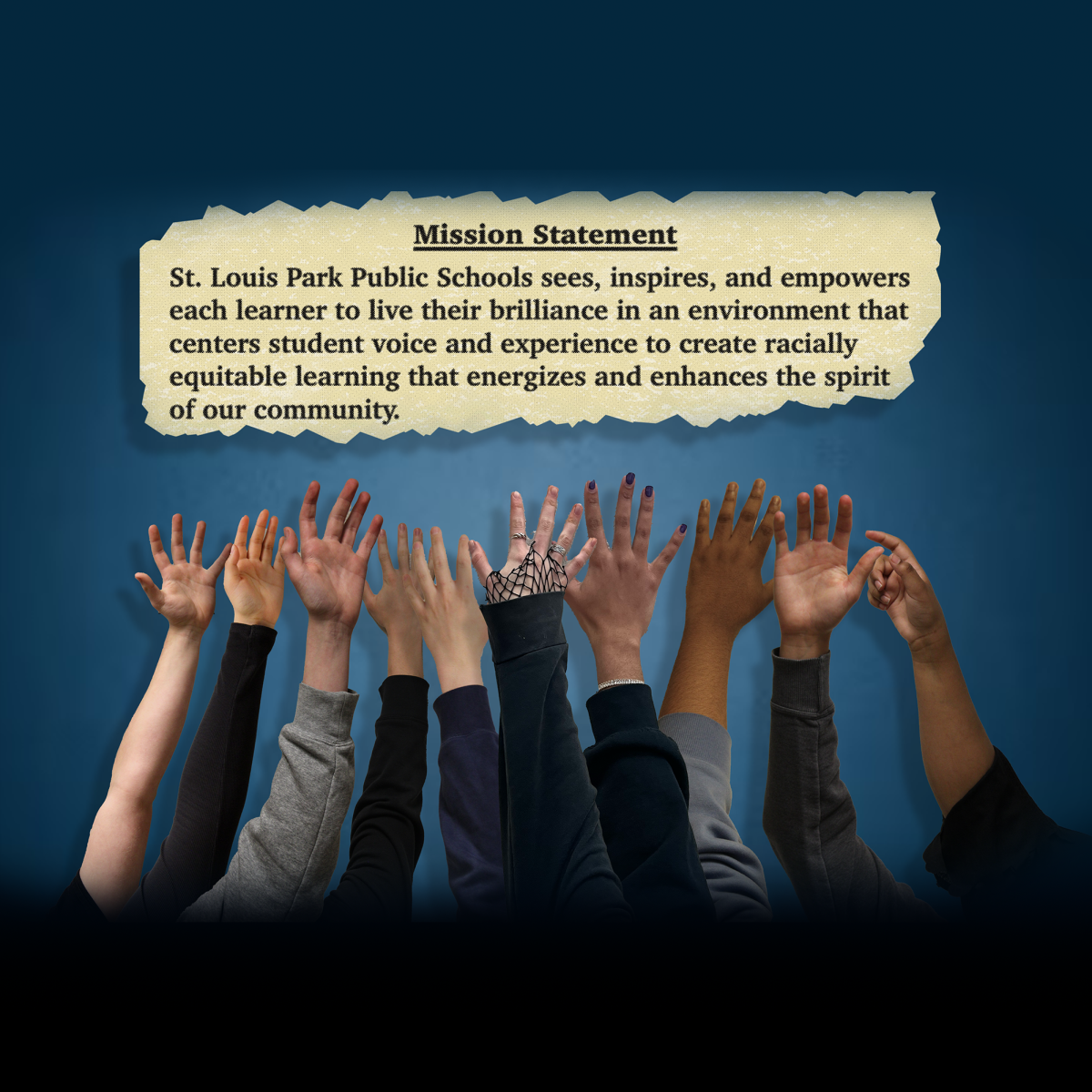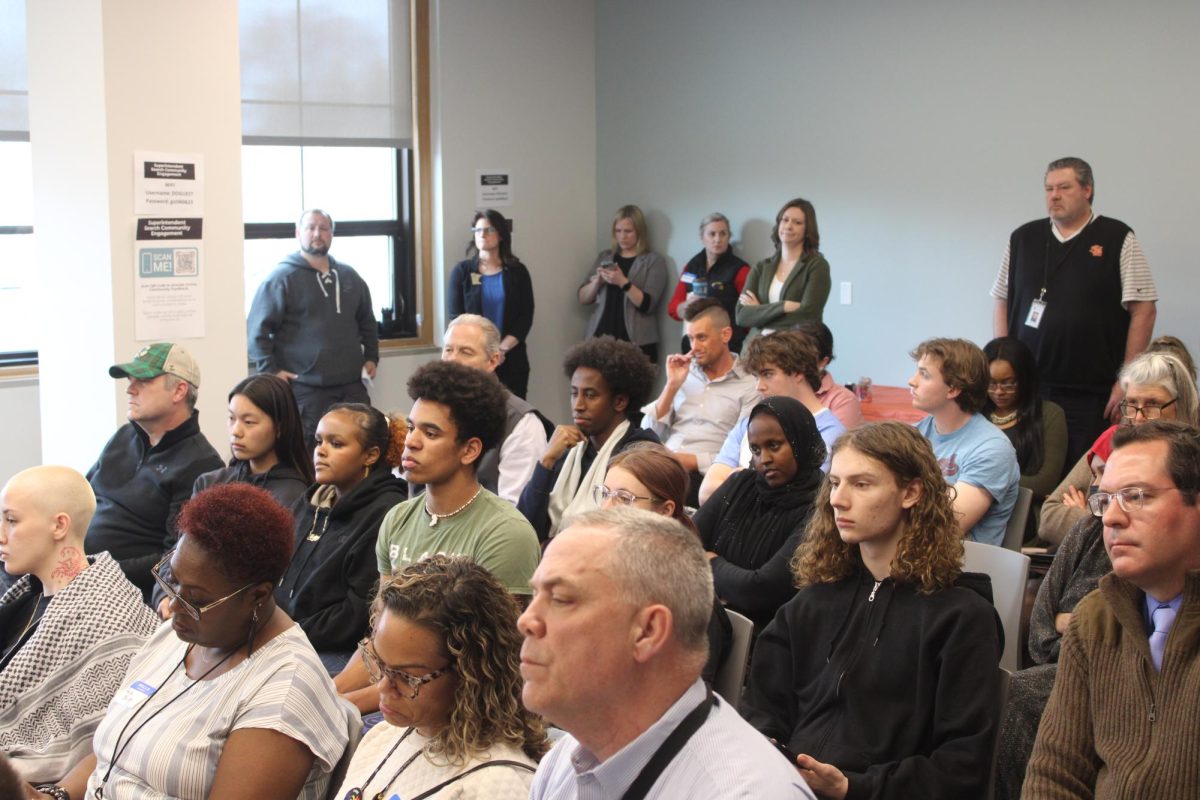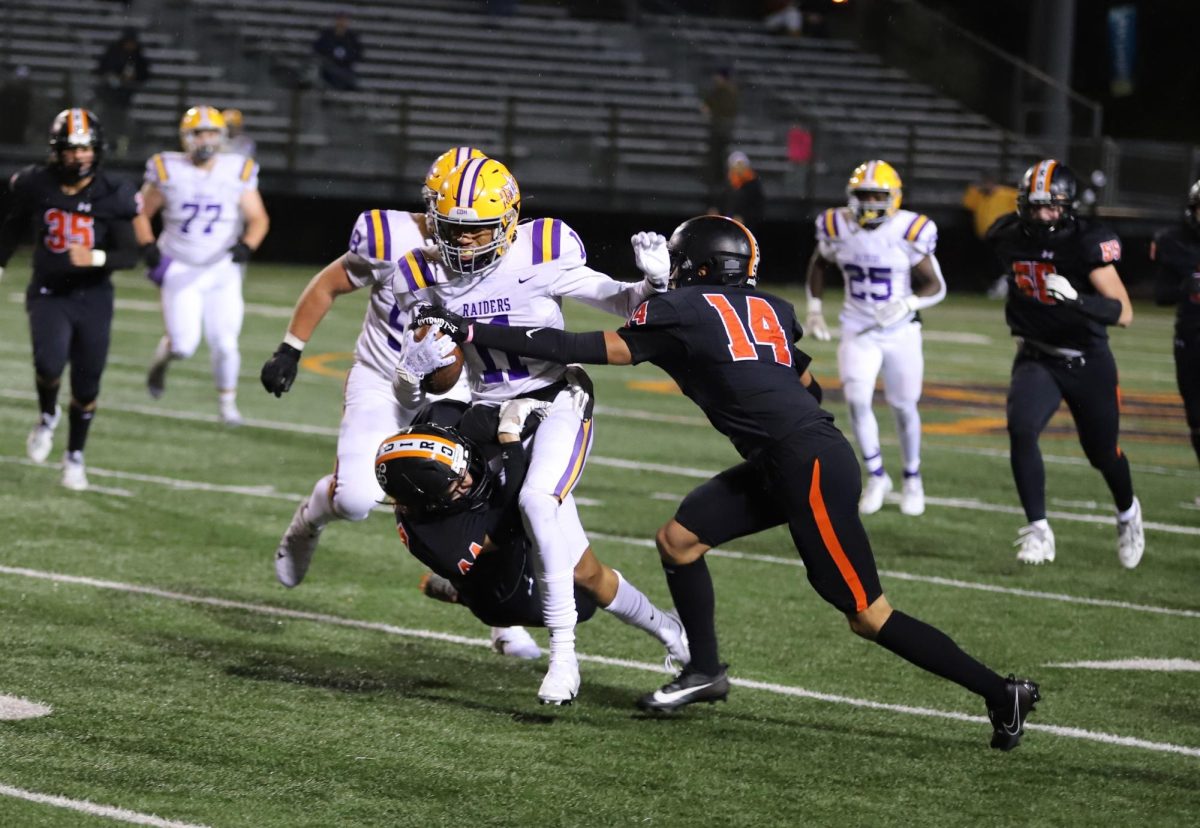On Nov. 2, 2023, the School Board received a letter from the First Liberty Institute threatening legal action against the district if they refused elementary students the ability to opt out from reading books with LGBTQ content. First Liberty, a nonprofit firm, has a reputation for winning high-profile, controversial cases covering religious liberties, eight of which have been heard before the US Supreme Court. The letter, written on behalf of six Somali families in the district, claims the district violated state law by lacking the option for students to opt out of LGBTQ material. In addition to being granted an opt-out option for their children, the families are also demanding that at least one Somali Muslim parent be on every committee that reviews and writes curriculum.
According to Kat Rohn, executive director of LGBTQ advocacy group OutFront Minnesota, state law requires schools to allow parents to pull their children from certain lessons upon request.
“Opting out is a parental right under the state of Minnesota,” Rohn said. “The requirement at a state level is for schools to have a process for opting out where (a parent) can make a request to administration surrounding specific content, then within reason, administration can provide alternative instruction.”
Rachel Hicks, the Director of Communications for St. Louis Park Public Schools, said Park provides a form where parents can request to opt out of a certain lesson.
“Families can pursue alternative instructional materials by completing a form and sending it to their teacher or school principal,” Hicks said. “The form is designed to gather the necessary information to better understand your specific preferences and work collaboratively to answer questions and find suitable alternatives.”
Before the parents sent the letter outlining their complaints, three mothers voiced their concerns at a school board meeting Oct. 24. One parent, identified only as Ilhan, introduced herself as a representative of the Somali community at Park. She said the school didn’t give parents the opportunity to opt-out by neglecting to inform them in advance that the school would be using LGBTQ-related materials.
“We stand before you today as representatives of the Somali community in St. Louis Park,” Ilhan said. “It is disheartening that these books were introduced to our children without our knowledge or consent, leaving us with no recourse to opt-out. Our request is simply to inform (parents) in advance when materials related to sexuality and LGBTQ identity are included in the curriculum, along with the option to exempt our children from those specific lessons.”
Rohn said the parents issued a complicated request for the district, because the lines for what constitute “LGBTQ materials” are blurry.
“The challenge for administration is what the bounds and limitations of that (request) are,” Rohn said. “If families are allowed to opt-out of anything touching LGBTQ curricula, does (the school) need to review every piece of curriculum for even incidental content around this? If somebody mentions Stonewall in a history class, does that then become content to be opted-out from?”
Sophomore Juliana Meyer said opting out of LGBTQ materials could prohibit students from understanding their LGBTQ peers.
“If (the parent’s) complaints are about acknowledging that certain people exist, then they don’t have a right to opt-out of that,” Meyer said. “It’s important to learn about everybody, even if you don’t agree with who they are. I’ve seen firsthand how the lack of education around LGBTQ people can affect students and how they treat other students.”
Two books mentioned in the letter include a true story of two dads adopting a child. There is also a book with a non-binary main character. Sophomore Nix Casey-Fix said parents shouldn’t have a say in LGBTQ curriculum.
“When it comes to diverse books, I don’t think parents have a right to say what books their kids can or can’t read,” Casey-Fix said. “Every book is in the curriculum for a reason.”
Rohn said this sentiment is supported by state-wide and federal law, which protect the rights of students against discrimination in schools.
“You’re going to have parents of LGBTQ students concerned that their children aren’t being afforded protections from bullying without conversations about these issues in schools,” Rohn said. “The Minnesota Human Rights Act has been litigated in that space, there are clear, well-established protections for students there, and if schools can’t uphold that, they’re going to be in violation of both the Minnesota Human Rights Act and Title IX at a federal level.”
In her School Board statement, Ilhan said the parents’ concerns are not targeted at the LGBTQ community, and that she only wants the district to respect their religious beliefs.
“Our concerns are not rooted in animosity,” Ilhan said. “We wholeheartedly respect the importance of affirming LGBTQ identities, but we believe (the school’s) approach directly conflicts with our deeply-held religious beliefs. We believe that diversity and inclusion are principles that should extend to everyone, including religious families.”
According to Rohn, Park isn’t the first district to receive complaints like these — they said they have seen similar pushes from families to provide opt-outs from LGBTQ curriculum nationwide.
“We’ve seen six or seven districts throughout the state of Minnesota this year who have pushed for potential opt-out from curriculum, specifically from East African or Muslim families,” Rohn said. “That follows a trend that has happened nationally — there was a case that started last year in Maryland where a number of families attempted to sue the state to get the opportunity to opt-out (of LGBTQ curriculum).”
Junior Autumn Wahlberg said the opt-out requests mirror a book-banning surge in the Southern States.
“In Tennessee and Florida, they’ve tried to ban teaching about people of color in history and in some areas have even tried to ban talking about slavery,” Wahlberg said. “That was because of parents complaining. It’s all one big spider web — if you talk about influential black people, that leads down the line of talking about influential black gay people. You can’t have one without the other.”
While Maryland courts ultimately sided with the school district, Ilhan said there have been multiple cases where the supreme court found in favor of similar complaints in schools on the basis of religious freedom.
“The First Amendment, a bedrock of our democracy, safeguards not only the freedom to direct our children’s education, but also guarantees our rights to express our preferred religious beliefs without governmental interference,” Ilhan said. “The supreme court has been a staunch defender of (these rights).”
Senior Nolen Heinrichs said the First Amendment may not support the parents’ demands. While the amendment provides some protections, Heinrichs said there are exceptions regarding the infringement of the rights of others.
“The First Amendment protects religious freedom in schools, but only to a certain extent,” Heinrichs said. “In ninth grade civics, we talked about how there’s a certain point when requests become hateful or there’s a danger to other people, when it no longer protects them.”
It is still unclear whether the case will move to trial or not. While district communications declined to interview for this piece, the school board released a statement Jan. 7 announcing they have no plans to change curriculum following the complaints.
“Stories with LGBTQ+ themes are an integral part of the effort to foster understanding, acceptance and respect among our students,” the district wrote. “We are proud of our curriculum and have no plans to alter or remove any part of it in response to the concerns raised.”
Rohn said if the case moves to court, they believe the verdict will lie on the side of the school district.
“The judicial landscape here in Minnesota is certainly favorable to LGBTQ rights,” Rohn said. “The cultural landscape generally has been as well. My expectation is that Minnesota courts would not find in favor of (the parents). Broadly opting out from any health or LGBTQ curriculum is too far removed from what the legislative intent was.”
Casey-Fix said parents shouldn’t be able to dictate what is taught in schools concerning factual and diverse material.
“When it comes to diverse materials, parents sometimes take it too far when they’re not educated about what that curriculum should actually look like,” Casey-Fix said. “The school is standing their ground, which is what they should be doing.”
Rohn said moving the case to litigation could make it difficult for the board and parents to work together by positioning them against each other in a fight to win the case. Rohn said in a lawsuit, respectful and productive conversations are not a priority.
“Working within the framework of litigation can create limitations to how we should have those conversations,” Rohn said. “Folks should be free to come to school environments with a variety of different religious and personal viewpoints.”
Meyer said the school board should meet with the families and explain why they use the curriculum they do. She said students need to respect everyone, no matter their religious beliefs.
“The board should talk to the parents and tell them exactly what they’re going to be learning and what the purpose of that is to help them understand that they’re using these books to teach students that those people exist and they need to be respected, no matter what you believe religiously,” Meyer said. “It’s important for students to learn that in elementary school because that affects how they treat people when they’re older.”
According to Rohn, they hope the district is able to resolve the parents’ concerns without taking the case to court. Conversations with community members, Rohn said, may help lead the district and the parents to a place of understanding.
“Most schools can resolve these conversations without having to go to litigation,” Rohn said. “Public schools are diverse spaces that have to reflect multiple different identities. Hopefully, community conversations can help us arrive at a place of understanding how we can hold diverse viewpoints around these issues.”




